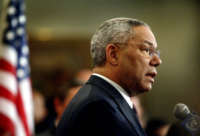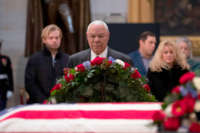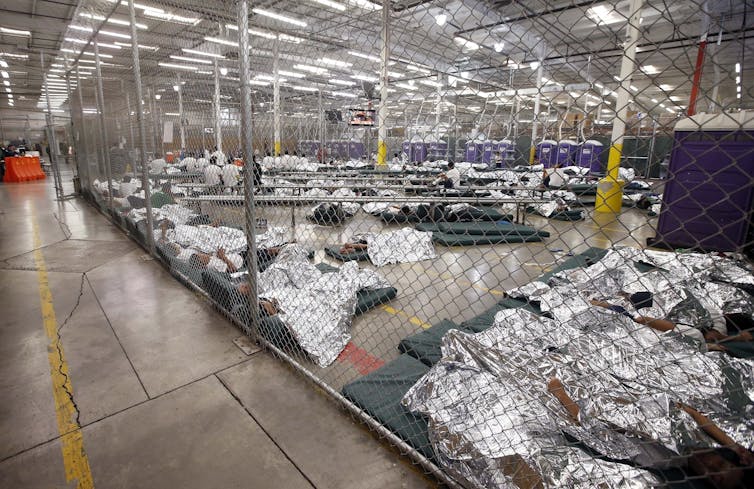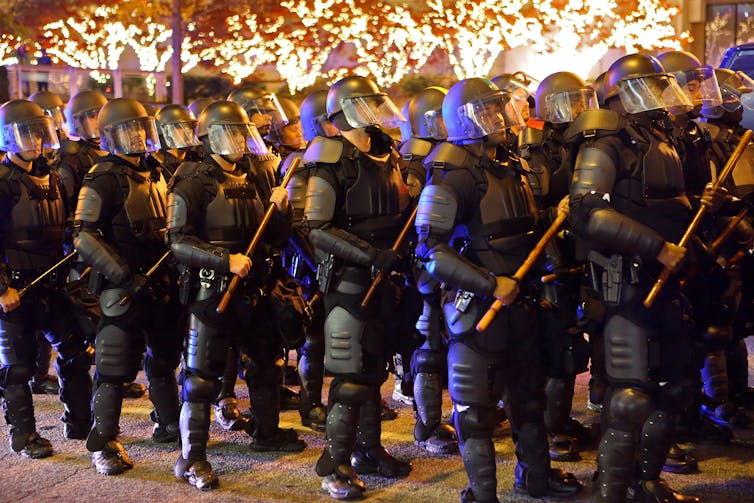COMMENTARY: By John Minto
Good slogans have people nodding their heads in agreement because they recognise an underlying truth in the words.
I have a worn-out t-shirt which carries the slogan, “The first casualty of war is truth — the rest are mostly civilians”.
If you find yourself nodding in agreement it’s possibly because you have found it deeply shocking to find this slogan validated repeatedly in almost eight months of Israel’s war on Gaza.
- READ MORE: Palestine protesters challenge TVNZ over Israeli ambassador’s ‘propaganda’
- Columbia Law Review website shut down over ‘censored’ article critical of Israel
- Other War on Gaza reports
The mainstream news sources which bring us the “truth” are strongly Eurocentric. Virtually all the reporting in our mainstream media comes via three American or European news agencies — AP, Reuters and the BBC — or from major US or UK based newspapers such as The Daily Telegraph, The Times, The Washington Post or The New York Times.
This reporting centres on Israeli narratives, Israeli reasoning, Israeli explanations and Israeli justifications for what they are doing to Palestinians. Israeli spokespeople are front and centre and quoted extensively and directly.
Palestinian voices, when they are covered, are usually at the margins. On television in particular Palestinians are most often portrayed as the incoherent victims of overwhelming grief.
In the mainstream media Israel’s perverted lies dominate.
Riddled with examples
The last seven months is riddled with examples. Just two days after the October 7 attack on Israel, pro-Palestinian protesters were accused of chanting “Gas the Jews” outside the Sydney Opera House.
The story was carried around the world through mainstream media as a nasty anti-semitic slur on Palestinians and their supporters. Four months later, after an intensive investigation New South Wales police concluded it never happened. The words were never chanted.
However the Radio New Zealand website today still carries a Reuters report saying “A rally outside the Sydney Opera House two days after the Hamas attack had ignited heated debate after a small group were filmed chanting “Gas the Jews”.
Even if RNZ did the right thing and removed the report now the old adage is true: “A lie is halfway around the world before the truth has got its trousers on”. Four months later and the police report is not news but the damage has been done as the pro-Israel lobby intended.
The same tactic has been used at protests on US university campuses. A couple of weeks ago at Northeastern University a pro-Israel counter protester was caught on video shouting “Kill the Jews” in an apparent attempt to provoke police into breaking up the pro-Palestine protest.
The university ordered the protest to be closed down saying “the action was taken after some protesters resorted to virulent antisemitic slurs, including ‘Kill the Jews’”. The nastiest of lies told for the nastiest of reasons — protecting a state committing genocide.
Similarly, unverified claims of “beheaded babies” raced around the world after the October 7 attack on Israel and were even repeated by US President Joe Biden. They were false.
No baby beheaded
Even the Israeli military confirmed no baby was beheaded and yet despite this bare-faced disinformation the Israeli ambassador to New Zealand was able to repeat the lie, along with several others, in a recent TVNZ interview on Q&A without being challenged.
War propaganda such as this is deliberate and designed to ramp up anger and soften us up to accept war and the most savage brutality and blatant war crimes against the Palestinian people.
Recall for a moment the lurid claims from 1990 that Iraqi soldiers had removed babies from incubators in Kuwaiti hospitals and left them to die on the floor. It was false but helped the US convince the public that war against Iraq was justified.
Twelve years later the US and UK were peddling false claims about Iraq having “weapons of mass destruction” to successfully pressure other countries to join their war on Iraq.
Perhaps the most cynical misinformation to come out of the war on Gaza so far appeared in the hours following the finding of the International Court of Justice that South Africa had presented a plausible case that Israel was committing genocide.
Israel smartly released a short report claiming 12 employees of UNRWA (United Nations Relief and Works Agency) had taken part in the October 7 attack on Gaza. The distraction was spectacularly successful.
Western media fell over themselves to highlight the report and bury the ICJ findings with most Western countries, New Zealand included, stopping or suspending funding for the UN agency.
Independent probe
eedless to say an independent investigation out a couple of weeks ago shows Israel has failed to support its claims about UNRWA staff involved in the October 7 attacks. It doesn’t need forensic analysis to tell us Israel released this fact-free report to divert attention from their war crimes which have now killed over 36,000 Palestinians — the majority being women and children.
The problem goes deeper than manufactured stories. For many Western journalists the problem starts not with what they see and hear but with what their news editors allow them to say.
A leaked memo to New York Times journalists covering the war tells them they are to restrict the use of the terms “genocide” and “ethnic cleansing” and to avoid using the phrase “occupied territory” when describing Palestinian land.
They have even been instructed not to use the word Palestine “except in very rare cases” or the term “refugee camps” to describe areas of Gaza settled by Palestinian refugees driven off their land by Israeli armed militias in the Nakba of 1947–49.
These reporting restrictions are a blatant denial of Palestinian history and cut across accurate descriptions under international law which recognises Palestinians as refugees and the occupied Palestinian territories as precisely what they are — under military occupation by Israel.
People reading articles on Gaza from The New York Times have no idea the story has been “shaped” for us with a pro-Israel bias.
These restrictions on journalists also typically cover how Palestinians are portrayed in Western media. Every Palestinian teenager who throws a stone at Israeli soldiers is called a “militant” or worse and Palestinians who take up arms to fight the Israeli occupation of their land, as is their right under international law, are described as “terrorists” when they should be described as resistance fighters.
The heavy pro-Israel bias in Western media reporting is an important reason Israel’s military occupation of Palestine, and the ongoing violence which results from it, has continued for so long.
The answer to all of this is people power — join the weekly global protests in your centre against Israel’s settler colonial project with its apartheid policies against Palestinians.
And give the mainstream media a wide berth on this issue.
John Minto is national chair of the Palestine Solidarity Network Aotearoa (PSNA). This article was first published by The Daily Blog and is republished by Asia Pacific Report with the author’s permission.
This post was originally published on Asia Pacific Report.





